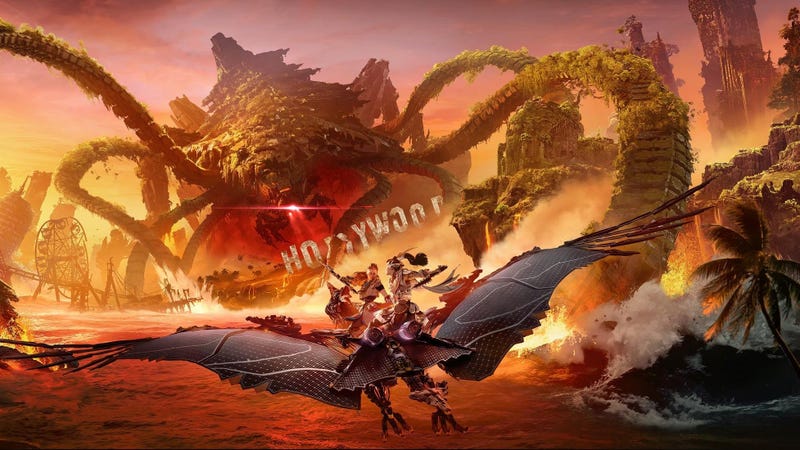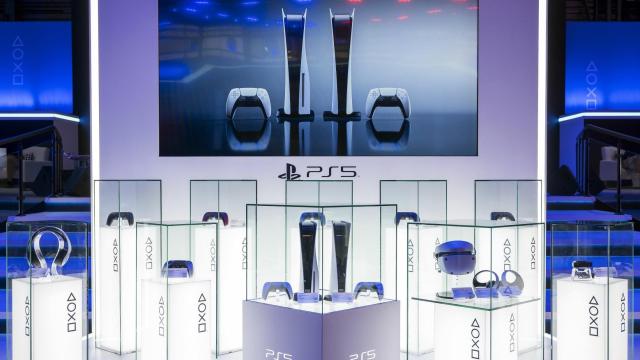Shawn Layden has been out of PlayStation for four years now, but retirement hasn’t stopped him from weighing in on larger trends in gaming. Long worried about ballooning blockbuster development budgets, the former CEO of Sony Computer Entertainment America has added studio consolidation and the state of game preservation to his warnings for the video game industry.
Last month, Layden shared some of these concerns during his keynote speech at the GamesIndustry.biz Investment Summit. “First, consolidation can be an enemy of creativity,” he said, remarking on an acquisition spree by large gaming publishers. “I also think rising costs in gaming are an existential threat to all of us. And the entry of [Google, Netflix, Apple and Amazon] into the sector—otherwise known as the ‘barbarians at the gate.’”
The life-long Sony veteran, who stepped down in 2019 amid a corporate reshuffling, expanded on some of these points in an interview last week with the Lan Parties podcast. Since leaving the PlayStation 5 maker, Layden has, perhaps unintentionally, occasionally taken on the role of an off-stage chorus in a Greek tragedy, hinting at the possibility of impending doom if game companies don’t “disrupt” themselves before the market does by finding broader appeal and more sustainable business models.
A perennial critic of the trend toward 40-60 hour blockbusters that require several years and hundreds of millions to develop, Layden talked about the need for companies to “de-risk” expensive projects by retreating into sequels and established Hollywood franchises. The recent race to acquire studios, with Microsoft, Sony, Embracer, Take-Two, and more spending billions to add to their portfolios, could lead to even less creativity as more teams are put to work servicing those projects.
“My concern around consolidation is that often it impacts creativity. For instance, it takes some kind of small, independent, wild horse studios and brings them into a larger conglomerate, and essentially time slows down the bigger you are, time slows down,” Layden said. “I’m also concerned when studios get bought and instead of enabling a way to create their game, they maybe get absorbed into a larger enterprise that’s making a larger game, you know, how many studios are involved in making blockbuster games that will stagger the mind.”
He said that in specific instances, acquisitions can save studios from shutting down and he’s glad to see that, but he remains worried about the lasting impact of the larger trend. “I’m just concerned about what it does to the creativity urge inside of the studios, and can they keep that sort of independent creativity alive or do they just get absorbed into the larger whole? Time will tell, but it’s a bit concerning. When you go from hundreds of voices to dozens of voices, you lose some voices,” Layden said.

The former executive also questioned how much gaming can continue to grow by focusing on existing genres that have already failed to win people over. “If we continue to coalesce around the four or five genres, then we won’t get the new players because those people have already said we’re not interested in your genres,” Layden said. “Don’t kid yourself that someone who’s said ‘no’ to Call of Duty for the last 15 years is going to start suddenly saying ‘yes’ to Call of Duty.”
Layden had a somewhat harsh appraisal of the industry’s general approach to game preservation as well. Backwards compatibility is available on both Xbox Series X/S and PS5, and Nintendo is flirting with it for the Switch 2, but there are still vast libraries of games on older hardware, including consoles as recent as the PlayStation 3, that are difficult if not altogether impossible to access on current platforms. Even PlayStation Plus, which added older PS1 and PSP classics to its subscription library last year, has been slow to add them.
“Preservation is important,” Layden said. “I’m hoping that more people in the industry, certainly the big players, begin to realize that there’s an obligation and responsibility. This isn’t throw-away stuff we’re making. This is stuff that should be around for a long time because future generations will enjoy it in the same way that we have and it’s criminal that we’re not doing more to protect it.”
While companies have been happy to remaster older games or sell new anthologies like this week’s Metal Gear Solid Master Collection, there’s been no larger unified campaign by publishers and console manufacturers to invest in keeping gaming’s history alive and available. As Layden points out, it rarely helps the bottom line. Culturally, though, it’s an important way for one generation of players to share their passion with the next. Besides, a medium untethered from its past might have a harder time seeing where it goes next.

Leave a Reply